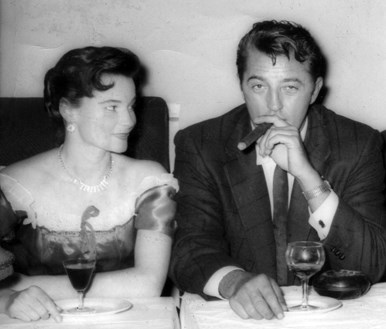"Can you shoulder your leg?" Once she had completed the rigorous training required of every Tiller Girl, Mary Coker could demonstrate the affirmative. Her ability to grasp her leg by the heel and extend it straight up in the air assured her entry into the exclusive company of John Tiller Girls.
In 1890, a Manchester cotton merchant with theatrical ambitions launched a dance company that became the phenomenon known as the Tiller Girls. In the British music halls of the day, dancers in the chorus were part of the scenery, a backdrop for the stars. Their performances were generally unorganized and somewhat ragged until John Tiller made history with a simple observation: when the dancers linked arms, they formed a straight line. The possibilities inherent in that straight line led to what is known today as precision dancing and brought the chorus line up front and centre stage.
The Tiller Girls' highkicking routines were "very polished and very finished," remembers Mari Mordell, the British dancer profiled in this column in February 2013. The dancers, groomed to the same high degree of polish, were matched in height and appearance. There were no individual stars among the Tiller Girls; the company was everything.
John Tiller's simple idea proved so popular that at one time more than 80 Tiller troupes were performing all over the world. The concept inspired many imitators but the Tillers were the originals. There would be no highstepping Rockettes at New York's Radio City Music Hall had the Tiller Girls not stepped out first.
"Apparently, I was dancing as soon as I could toddle," recalls Mary. She was born in 1930 in Grays, Essex, moments after her twin brother, John. Together, they weighed just more than six pounds and spent their first few days of life swaddled in cotton batting and eiderdowns, a comfort that was short lived. Mary and her siblings grew up in the Depression years and when the war came, they joined the ranks of Britain's child evacuees.
When the family was reunited, Mary and John performed with their parents' band, the Silver Star, which played the music of the old fashioned English dances. The twins and their parents would form the first quartet of the lancers, each one coaxing a member of the audience into the next quartet and so on until everyone was on the dance floor.
Even so, a career as a professional dancer seemed out of reach for Mary who turned to her skills in shorthand and typing. She was a senior secretary in a soap factory when a sympathetic manager encouraged her to try out for the Tiller Girls.
At the age of 20, groomed, polished and precise, Mary Coker stepped onstage at the Grand Opera House in Belfast in her first appearance as a Tiller Girl.
Mary's collection of memorabilia includes a program from Sky High, a lavishly staged revue that toured in South Africa. The John Tiller Girls of 1953, including Mary, were among the headliners.
"Oh, South Africa was all sunshine and bananas! We were still on rationing in England. I hadn't seen a banana since before the war." Fifteen of the 16 Tiller Girls company petitioned to forfeit their return passage to England and remain in South Africa. Management declined.
Back in England and between engagements with the Tiller Girls, Mary danced where she could. Performing with the Sherman Fisher Palladium Dancers, she befriended a rising comedian named Benny Hill. At the Coconut Grove club, she was invited to dance by Clark Gable and was famous for refusing a date with Robert Mitchum. "He's not my type," the newspaper headlines blared.
It took three years to earn a return ticket to the land of sunshine and bananas. Mary continued her dance career until she married. When she became a single mother, Mary returned to secretarial work and then to a more rewarding job as a manufacturer's representative, visiting jewelry shops across South Africa.
When her son immigrated to Canada, Mary joined him in 1999 and a new chapter in her life opened. Today, Mary is still very polished and very finished in appearance and very certain that "coming to Canada was the best decision I ever made."



